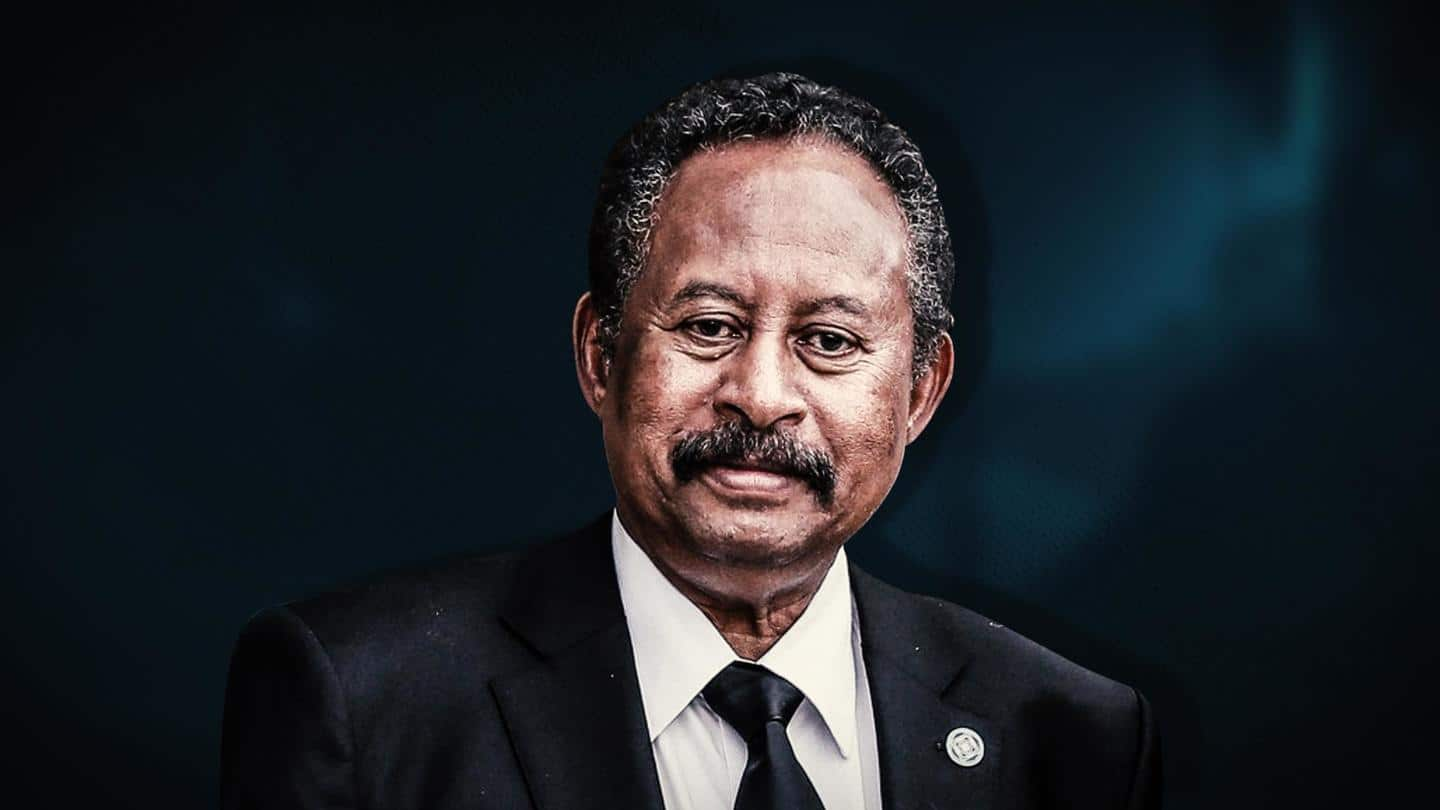
Sudan PM arrested amid coup; what led to the crisis?
What's the story
Sudanese Prime Minister Abdalla Hamdok has been arrested by security forces along with other officials, reports said on Monday.
Hamdok was taken to an unknown location after he refused to be part of a military coup, Sudan's Information Ministry said in a statement.
Expressing concern, the United Nations called on security forces to "immediately" release those detained.
Context
Why does it matter?
Sudan had been undergoing a political transition after the ouster of leader Omar al-Bashir in 2019.
Military and civilian groups were meant to share power until elections by 2023-end, however, the latest developments indicate the groups are unwilling to come to a power-sharing agreement.
The latest developments in Sudan mark the country's eighth military coup since it gained independence from the British in 1956.
Details
PM's wife, ministers, officials in custody
The Ministry said Hamdok has been moved to an "unidentified location" after initial reports that he had been placed under "house arrest."
Reportedly, Hamdok's wife, Muna Abdalla, has also been taken into custody along with Industry Minister Ibrahim al-Sheikh, Information Minister Hamza Baloul, the PM's media adviser Faisal Mohammed Saleh, the head of Sudan's sovereign council, Mohammed al-Fiky Suliman, and Khartoum Governor Ayman Khalid.
Reports
Communication, roads to capital blocked
According to Al Jazeera, telecommunications access has been restricted in Sudan.
The military has reportedly started blocking roads and bridges to the capital Khartoum, where government offices and the presidential palace are located.
Protesters have taken to Khartoum's streets hoisting the national flag after a call by pro-democratic political group Sudanese Professional's Association (SPA).
SPA described the latest developments as a military coup.
Quote
Masses asked to 'stage general strike'
The SPA said in a statement, "We urge the masses to go out on the streets and occupy them, close all roads with barricades, stage a general labor strike, and not to cooperate with the putschists and use civil disobedience to confront them."
United Nations
Release detainees, return to dialogue: UN
Volker Perthes, Special Representative of the United Nations Secretary-General (SRSG) for Sudan, said he is "very concerned" about the coup and the attempts to undermine Sudan's political transition.
He asked the security forces to "immediately release" those unlawfully detained or placed under house arrest.
"I urge all parties to exercise maximum restraint... and return to dialogue," he said.
Recent news
Fault lines in interim government
Last month, another failed coup attempt in Sudan had worsened issues between military and civilian groups that were meant to share power as an interim government after al-Bashir's ouster in 2019.
Elections were expected to be held in Sudan by 2023-end.
An agreement had also been reached between Hamdok and Abdel Fattah al-Burhan—the head of Sudan's ruling council—before US special envoy Jeffrey Feltman.
Information
'Worst and most dangerous crisis'
However, Sudan had been witnessing strong protests by civilian groups demanding full power. Meanwhile, many had held a sit-in protest in Khartoum, demanding "military rule" be brought back. PM Hamdok earlier described the unrest in the interim government as the "worst and most dangerous crisis."